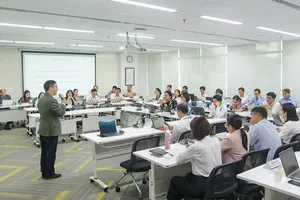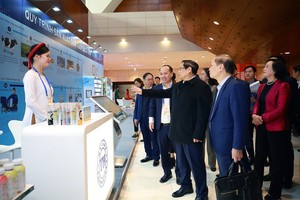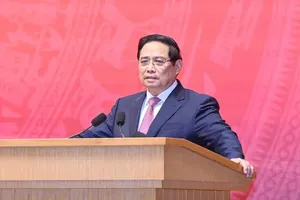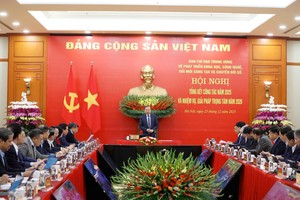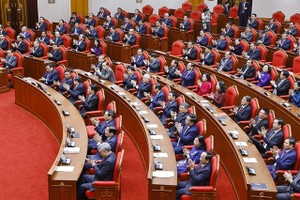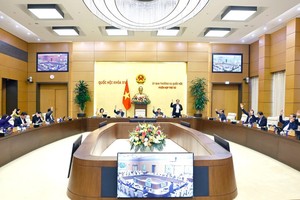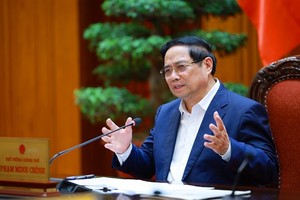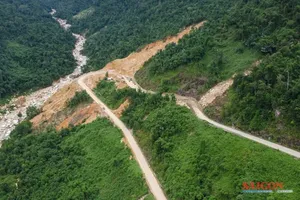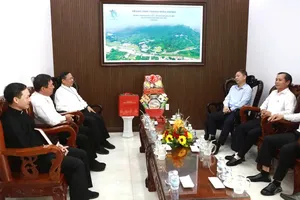Prime Minister Nguyen Tan Dung on Feb. 28 ordered the construction of the Nhan Co alumina plant in the Central Highlands province of Dak Nong.
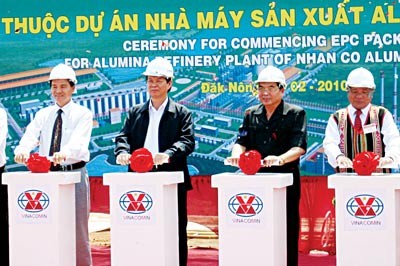
Speaking at the groundbreaking ceremony, PM Dung said Vietnam is one of the countries worldwide that boasts huge bauxite potential with an estimated reserve of 5.4 billion tons mainly in the Central Highlands.
The PM emphasised the need to develop bauxite exploitation and aluminium hydroxide, alumina and aluminium production industry, describing it as the country’s important socio-economic target to serve domestic consumption and export.
He stated that under an approved plan for the 2007-2015, Vietnam will build a number of alumina plants with a combined output of 6.4 million tons per annum and the capacity will be raised in the following years, with their products to be exported in the first phase.
Dung praised the concerted efforts of Dak Nong province and the investor - the Vietnam National Coal and Mineral Industries Group (Vinacomin) - in deploying the project strictly.
The leader applauded the endeavours of the Ministry of Natural Resources and the Environment and the Ministry of Industry and Trade in assessing the project’s impacts on the environment as well as its economic efficiency.
The project is expected to foster sustainable socio-economic development, security and political stability in the Central Highlands and accelerate the regional economic restructuring from agro-forestry to multi-sector economy with industry and service as its basic components.
PM Dung said that the project will create direct and indirect jobs for over 10,000 workers, form a foundation for the development of the nation’s alumina and supporting industries, increase the province’s GDP and bring a large volume of foreign currency to the country.
He asked the investor and workers to ensure the quality and progress of the project, especially guarantee environmental standards as well as the quality of water resources in the region.
Vinacomin and Dak Nong province should promptly select young people of local ethnic minority groups for training to work for the project, and improve the living conditions, both materially and spiritually, of the residents, Dung said.
The PM requested the engineering, procurement and construction contractor – the China Aluminium International Co. Ltd. – to abide by Vietnamese law and the locality’s regulations.
Vinacomin General Director Tran Xuan Hoa said this is the second alumina project invested by the group after the first in the neighbouring province of Lam Dong , with a designed capacity of 650,000 tons a year.
The project, which is scheduled to begin operations by the end of 2012, will use Bayer technology to produce alumina and technological advances to protect the surrounding environment, Hoa added.
Along with the Nhan Co factory, Vinacomin will study the possibility of building an alumina electrolysis plant with an annual output ranging between 150,000-200,000 tons in the near future.
The same day, PM Dung had a working session with Dak Nong provincial leaders, during which he urged the province to fully tap available potentials, especially bauxite ores, in order to make breakthrough developments.
The government leader hailed Dak Nong’s achievements in recent years, citing its GDP growth rate of 14.6 percent and the rate of poor households dropping to 13.28 percent in 2009.
He requested the province to adopt drastic measures to fulfill the socio-economic target set for 2010, including a GDP growth rate of more than 15 percent, total social investment of VND7.1 trillion and reducing poverty rate to below 10 percent.


